第60章 LETTER XI(3)
Occasionally we passed a canoe with a "savage" crouching in it fishing, but saw no other trace of man, till an hour ago we came upon large cocoa groves, a considerable clearing in the jungle, and a very large Malayan-Chinese village with mosques, one on either side of the river, houses built on platforms over the water, large and small native boats covered and thatched with attap, roofed platforms on stilts answering the purpose of piers, bathing-houses on stilts carefully secluded, all forming the (relatively) important village of Permatang Pasir.
Up to this time we had expected to find perfectly smooth sailing, as a runner was sent from Malacca to the Resident yesterday. We supposed that we should be carried in chairs six miles through the jungle to a point where a gharrie could meet us, and that we should reach the Residency by nine tonight at the latest. On arriving at Sempang, Mr.
Hayward had sent a canoe to this place with instructions to send another runner to the Resident; but "The best laid schemes of men and mice gang aft aglee."
The messenger seemed to have served no other purpose than to assemble the whole male population of Permatang Pasir on the shore--a sombre-faced throng, with an aloofness of manner and expression far from pleasing. The thatched piers were crowded with turbaned Mussulmen in their bajus or short jackets, full white trousers, and red sarongs or plaitless kilts--the boys dressed in silver fig-leaves and silver bangles only. All looked at our unveiled faces silently, and, as I thought, disapprovingly.
After being hauled up the pier with great difficulty, owing to the lowness of the water, we were met by two of the Datu Klana's policemen, who threw cold water on the idea of our getting on at all unless Captain Murray sent for us. These men escorted us to this police station--a long walk through a lane of much decorated shops, exclusively Chinese, succeeded by a lane of detached Malay houses, each standing in its own fenced and neatly sanded compound under the shade of cocoa-palms and bananas. The village paths are carefully sanded and very clean. We emerged upon the neatly sanded open space on which this barrack stands, glad to obtain shelter, for the sun is still fierce. It is a genuine Malay house on stilts; but where there should be an approach of eight steps there is only a steep ladder of three round rungs, up which it is not easy to climb in boots! There is a deep veranda under an attap roof of steep slope, and at either end a low bed for a constable, with the usual very hard, circular Malay bolsters, with red silk ends, ornamented with gold and silk embroidery. Besides this veranda there is only a sort of inner room, with just space enough for a table and four chairs. The wall is hung with rifles, krises, and handcuffs, with which a "Sam Slick" clock, an engraving from the Graphic, and some curious Turkish pictures of Stamboul, are oddly mixed up. Babu, the Hadji, having recovered from a sulk into which he fell in consequence of Mr. Hayward having quizzed him for cowardice about an alligator, has made everything (our very limited everything) quite comfortable, and, with as imposing an air as if we were in Government House, asks us when we will have dinner! One policeman has brought us fresh cocoa-nut milk, another sits outside pulling a small punkah, and two more have mounted guard over us. This stilted house is the barrack of eleven Malay constables. Under it are four guns of light calibre, mounted on carriages, and outside is a gong on which the policemen beat the hours.
At the river we were told that the natives would not go up the shallow, rapid stream by night, and now the corporal says that no man will carry us through the jungle; that trees are lying across the track; that there are dangerous swamp holes; that though the tigers which infest the jungle never attack a party, we might chance to see their glaring eyeballs; that even if men could be bribed to undertake to carry us, they would fall with us, or put us down and run away, for no better reason than that they caught sight of the "spectre bird" (the owl); and he adds, with a gallantry remarkable in a Mohammedan, that he should not care about Mr. Hayward, "but it would not do for the ladies." So we are apparently stuck fast, the chief cause for anxiety and embarrassment being that the youngest Miss Shaw is lying huddled up and shivering on one of the beds, completely prostrated by a violent sick headache, brought on by the heat of the sun in the launch. She declares that she cannot move; but our experienced escort, who much fears bilious fever for her, is resolved that she shall as soon as any means of transit can be procured. Heretofore, I have always traveled "without encumbrance." Is it treasonable to feel at this moment that these fair girls are one?
I. L. B.